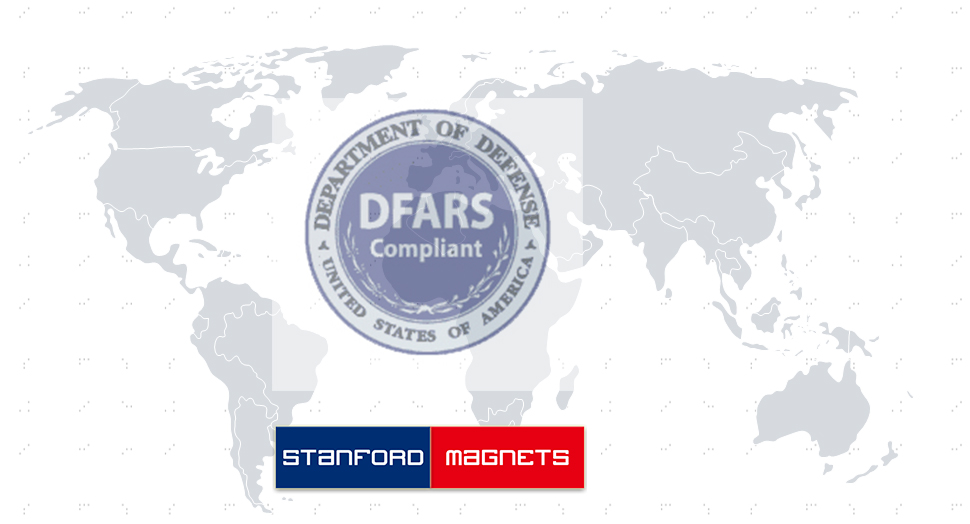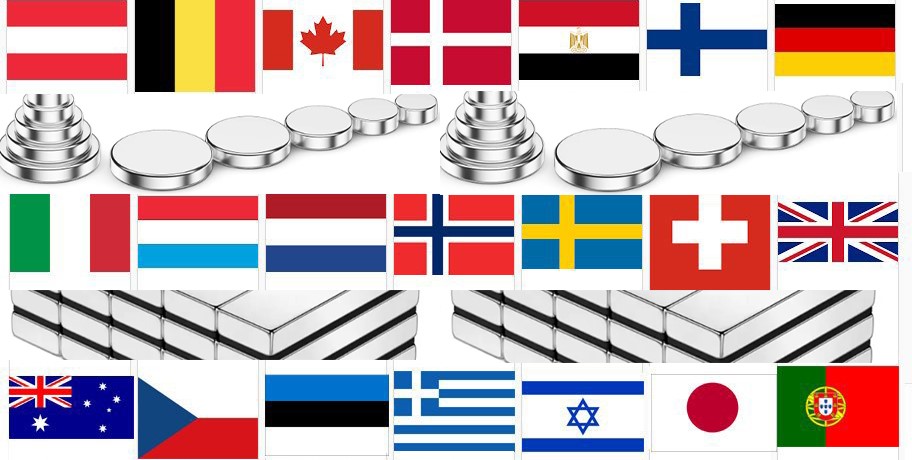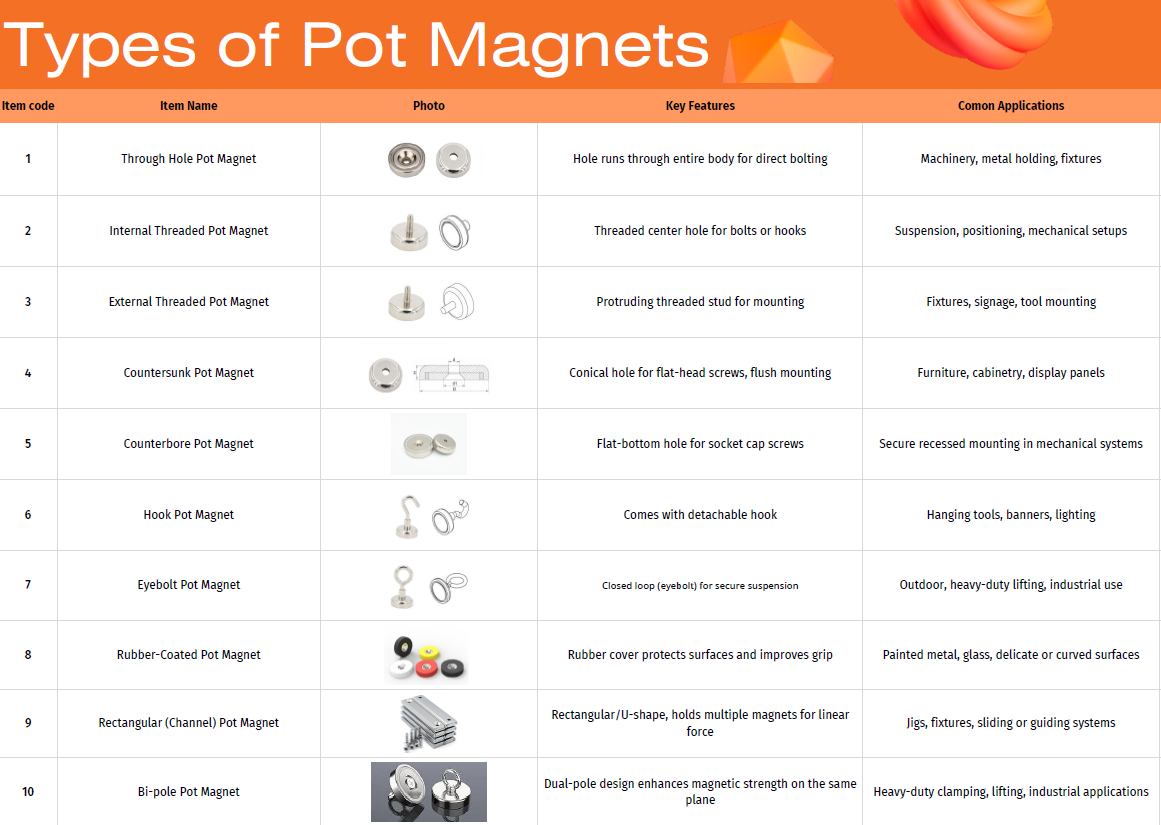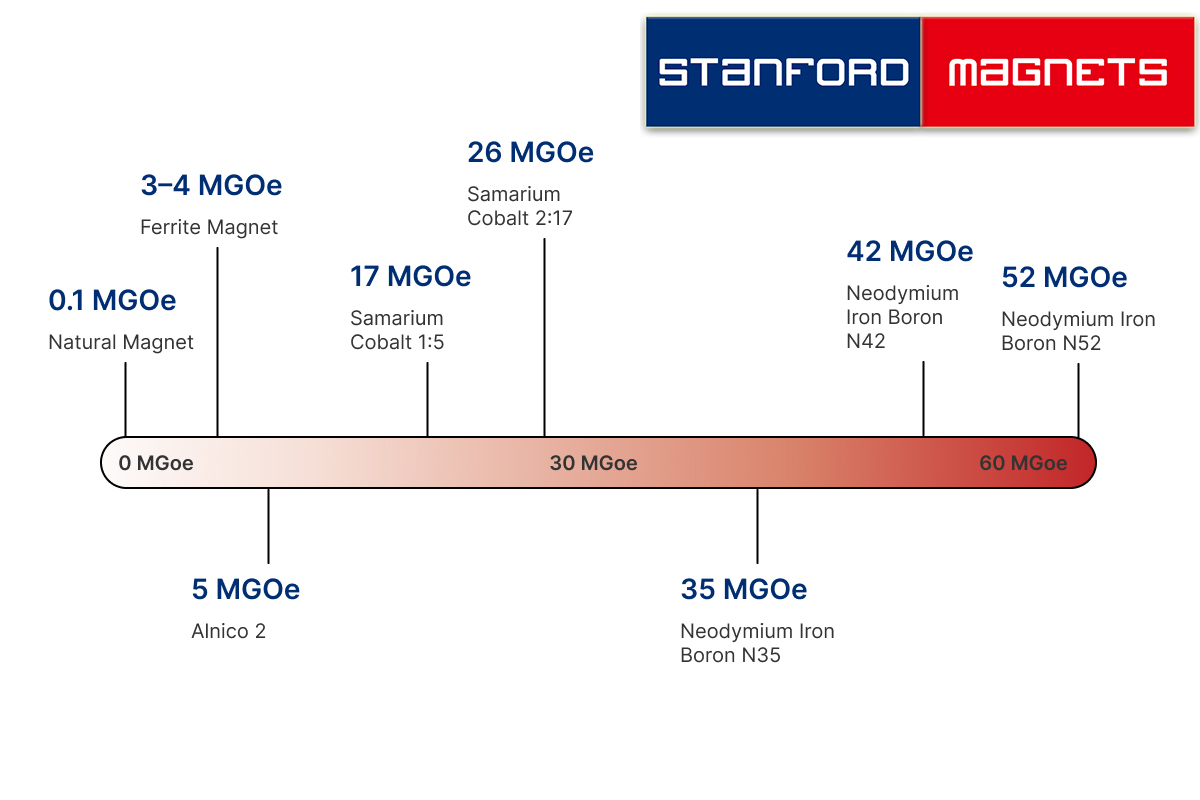DFARS Compliance: Countries, Materials, and More
Defense Federal Acquisition Regulation Supplement (DFARS) is a necessary handbook that prescribes how the U.S. Department of Defense (DoD) procures goods and services. Designed to enhance national security as well as ensure the integrity of the defense supply chain, DFARS compliance is not optional for any company that seeks to do business with the DoD.
Stanford Magnets outlines the restricted and accepted countries, covered materials, and suppliers' requirement for DFARS compliance. Wish you can obtain better understanding of non-China, DFARS compliant materials produced in the U.S.A.

What Is DFARS?
DFARS is an extension of the Federal Acquisition Regulation (FAR) for defense-specific procurements. It includes some clauses to protect national defense interests, such as cybersecurity, counterfeit parts, country of origin, and sourcing of critical materials. DoD contractors must incorporate DFARS clauses in their contracts and ensure all subcontractors do likewise.
Why DFARS Compliance Is Important?
1. National Security:
DFARS avoids the introduction of hostile material, parts, or software into defense systems. For example, the inclusion of Chinese-supplied rare earth materials or semiconductors in key military products poses a risk to security.
2. Eligibility under Contracts:
Non-compliance makes suppliers ineligible for the majority of DoD contracts. DFARS clauses are obligatory and cannot be bargained away,
3. Supply Chain Integrity and non-compliance can lead to fines, cancellation of the contract, and blacklisting.
Compliance ensures traceability and accountability throughout the supply chain—key when defense contracts require high reliability and trust.
Further reading: A Comprehensive Overview of Rare Earth Magnets
Covered Countries: Approved vs. Prohibited
DFARS has clauses barring sourcing materials and components from certain foreign nations. Prohibitions are mainly found in DFARS 252.225-7001 to -7003 and -7008 to -7016.
Prohibited Countries (Non-DFARS-compliant sources):
• China
• North Korea
• Russia
• Iran
• Cuba
• Sudan
• Syria
Approved Sources (Qualifying Countries):
DFARS allows acquisition from nations that have mutual defense procurement arrangements with the U.S. These nations are:
•Canada
•United Kingdom
•Australia
•Germany
•France
•Japan
•Sweden
•Norway
•Italy
•South Korea
.and others. (Full list: DFARS 225.872-1)

Strategic Materials under DFARS Restrictions
There are particular materials that are indeed identified in DFARS because of their strategic nature or compromise potential. Those are:
|
Material Category |
DFARS Concern |
|
Source restrictions (e.g., avoid China) |
|
|
Must be melted or produced in the U.S. or qualifying countries |
|
|
Tungsten |
Must be sourced from approved origins |
|
Titanium |
Limited to domestic or qualifying country origin |
|
Cobalt and Tantalum |
Monitored due to conflict minerals concerns |
Compliance Best Practices
- Verify Applicability
Determine if DFARS and NIST SP 800-171 apply to your DoD contracts.
- Assess Your Security Posture
Conduct a gap analysis against the 14 control families in NIST SP 800-171.
- Create and Update an SSP
Create a living System Security Plan outlining how requirements are satisfied and updated.
- Protect Your Data
Encrypt all Controlled Unclassified Information (CUI) in transit and at rest.
- Regulate Access
Enforce strict user access controls through authentication, encryption, and role-based access.
- Guarantee Supply Chain Compliance
Ensure all vendors and subcontractors adhere to DFARS requirements.
DFARS-Compliant Magnet Solutions from Stanford Magnets
Stanford Magnets provides DFARS-compliant, non-China, domestic magnetic materials, including rare earth magnets, AlNiCo, and ceramic magnets, sourced from approved countries. We ensure full material traceability, certified documentation, and strict adherence to defense sourcing standards—making us a trusted supplier for aerospace, military, and defense applications.
Conclusion
DFARS compliance is not just a regulatory obligation—it's defense of national security and supply chain integrity. For companies seeking to provide materials, parts, or services to the U.S. Department of Defense, understanding the scope of DFARS—from approved countries to restricted materials—is crucial.















